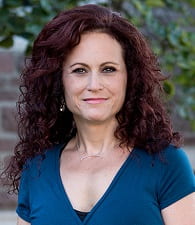In her nonprofit therapy practice, Rebecca Lester uses her anthropological findings to treat complicated mental disorders.
Through her research on eating disorders, religious conversions, and polyamory, Rebecca Lester, PhD has gained an intimate understanding of the complex relationship between cultural practice and personal development.
For the chair and professor of sociocultural anthropology, however, it’s not enough to have a theoretical understanding of the issues. In her nonprofit, highly personalized therapy practice, she applies the lenses of both anthropology and social work to address the needs of her patients.

(Photo: The Ampersand)
Recently, Lester sat down with the Ampersand to discuss her research on eating disorders, the healing potential of relationships, and how she built a community of selves.
What made you decide to pursue clinical work alongside your anthropological research, and how has that changed your perspective on mental health treatment?
Psychotherapy is something I’ve always wanted to do. As an assistant professor at WashU, I started research at an eating disorder clinic, and it reignited this desire in me to do something more hands-on than what I could do as an ethnographer. That’s when I decided to go back to school, get my master’s of social work, and do my clinical training.
Once I was a clinician, I could see how our healthcare system constrains the kind of work clinicians can do. When you have an insurance company looking over your shoulder saying, “You have 10 sessions to get this done,” you can’t really give a client what they need. Now, I have the luxury of working in a private practice, charging people whatever they can pay, and tailoring my treatment to each client. I do it because I’m passionate about it, and because people need mental health care.